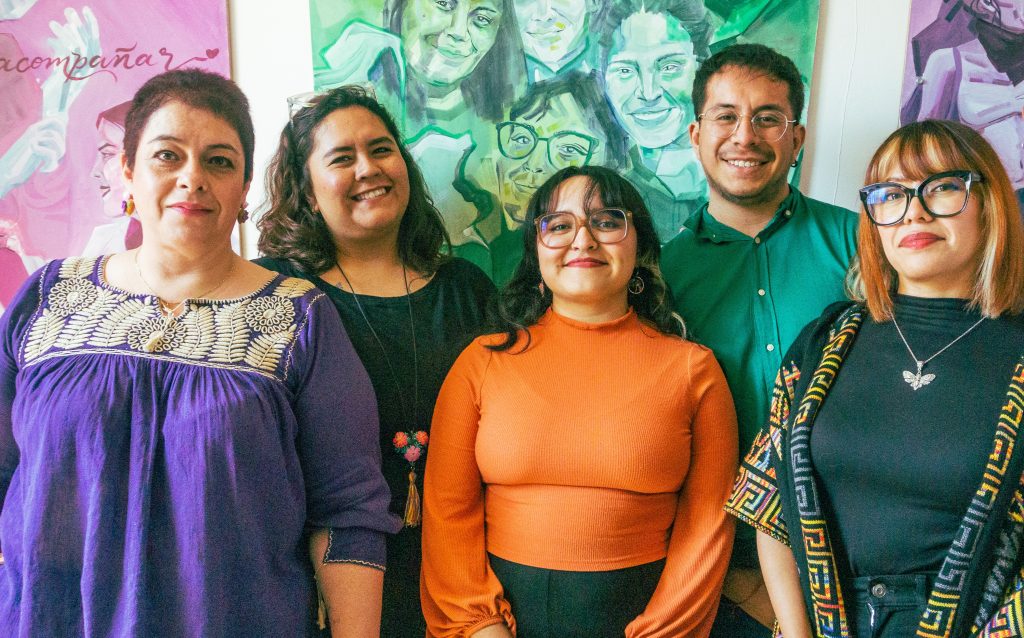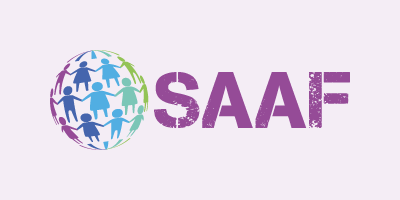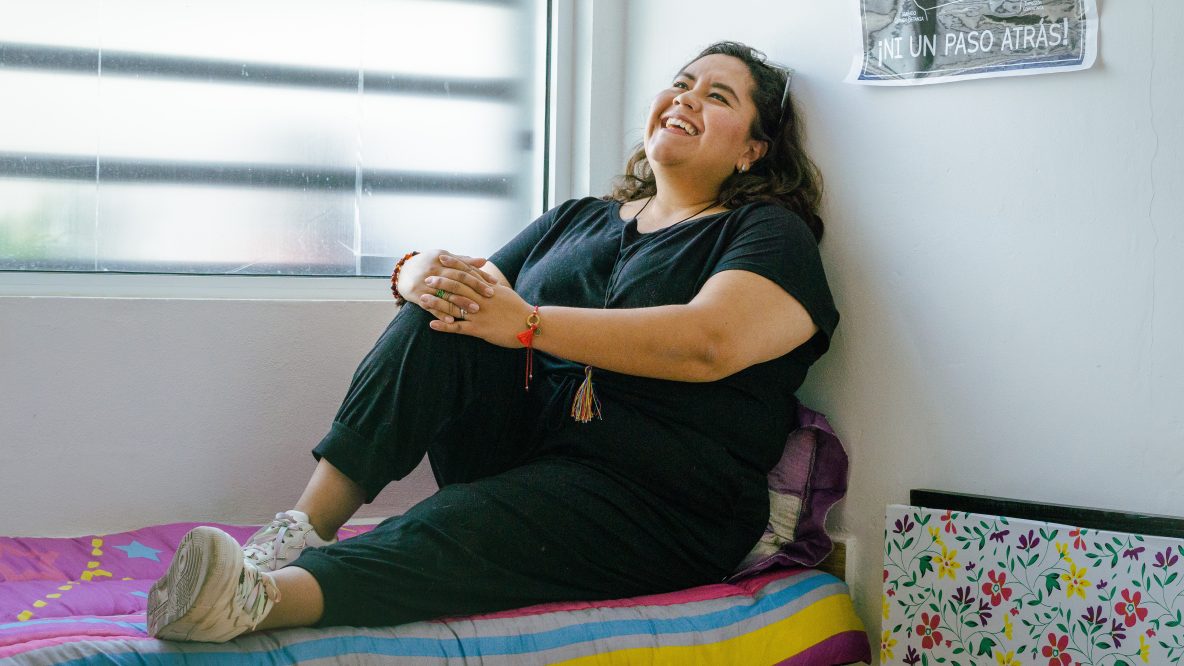I often say that abortion activism didn’t come into my life because I deliberately chose it – it just happened, and I decided to stay.
Back in 2015, when I was studying Psychology at university, some classmates were putting up stickers in the bathrooms with information about how to access Misoprostol. At that time, I didn’t understand much about it, and if I’m honest, at that time I felt that abortion should just be for cases of rape. I felt that with so many contraceptive methods available, how is it possible that women keep getting pregnant?
Over time, my thinking changed. Together with other classmates working on sexuality and gender we talked about putting our feminism into practice and starting an organisation that supports people. Then we saw a call for training from Fondo Maria, I applied and was successful.
It was then that I learned more about Misoprostol and everything started to make sense to me. So, sure, there are contraceptives, but none of them are 100% effective. And not everyone uses contraception or a condom every single time they have sex. That’s just the reality. Sexuality is varied, it’s diverse, and it should be free.
I first accompanied someone on their abortion journey in 2016.
It hasn’t always been easy working on abortion. I’ve received abuse online and even faced physical aggression from anti-choice groups. I accepted those risks as part of the work. But the most painful stigma came from my own family. Their rejection of me caused deep wounds. But in the end, I always return to the certainty that we are on the right side of history – on the right side of rights.
One story that has stayed with me is that of Mari, a young woman from a deeply conservative family. She came to us late in her pregnancy, too afraid to travel to access abortion in Mexico City because of her mother’s strict surveillance. She had been searching for help for months without success and she had started to give up but eventually found one of our stickers at a bus stop and got in touch.
We were able to support her through the process in the local area. When everything had gone OK and we said goodbye she said: “Today I go back to my house in freedom.” After months of suffering, of thinking that she had to resign herself to bear the child of a very violent relationship, she returned home that day calmly and in peace.
Although activists can do a lot, we can’t reach everyone.
For us, accompaniment is essential, but it cannot be the only option. People must have choices – whether that is going to a public hospital, accessing medication at home, or receiving private care.
It’s impossible for us to reach the entire population, and that is why it is so important that the health services become active and do their job.
Mexico’s Supreme Court has affirmed that no one should be criminalised for having an abortion. This is an important step, but implementation remains patchy. Many people, especially adolescents, indigenous women, migrants and those without internet access, still cannot get the care they need.
That is why at Di Ramona we monitor services, document barriers, and insist that authorities take responsibility for providing accessible abortion services.
We also argue against legal deadlines for abortion. All the states in Mexico are choosing to decriminalise only up to 12 weeks, but this is just a political agreement, it’s nothing to do with up-to-date medical and scientific evidence.

We are the abortion experts in our context.
Where we are in Hidalgo, there was a strong discourse that if you wanted to have an abortion you needed to go to Mexico City. But we started to say no, people are having abortions here in Hidalgo and we are accompanying them.
We were always very open about what we did and the support we were able to offer. This openness has allowed us to be in constant communication with people seeking abortions. This has been so valuable because it is never us dictating what is right or wrong, or assuming what people need. The users of our service tell us and then we get to work. We know the context and we know the people who need the services.
I want to imagine a future with free access to abortion.
I want abortion taken out of all criminal codes.
We need access to Mifepristone and Misoprostol in pharmacies, without barriers. We want to see health systems implementing the right to abortion services, knowing that they are not doing us a favor but that it is their job.
I imagine a future with far fewer medical providers being ‘conscientious objectors’. I imagine university medical programs with comprehensive sexual and reproductive health training that include abortion with Misoprostol and MVA.
I imagine an inclusive abortion movement where we all train together in a connected and strategic way.
Persistence has always been our strength at Di Ramona. We will continue to push for what is right and for truly inclusive abortion access for all.
Interview with Daniela Tellez, Executive Director of Di Ramona, a SAAF grantee partner in Mexico.




